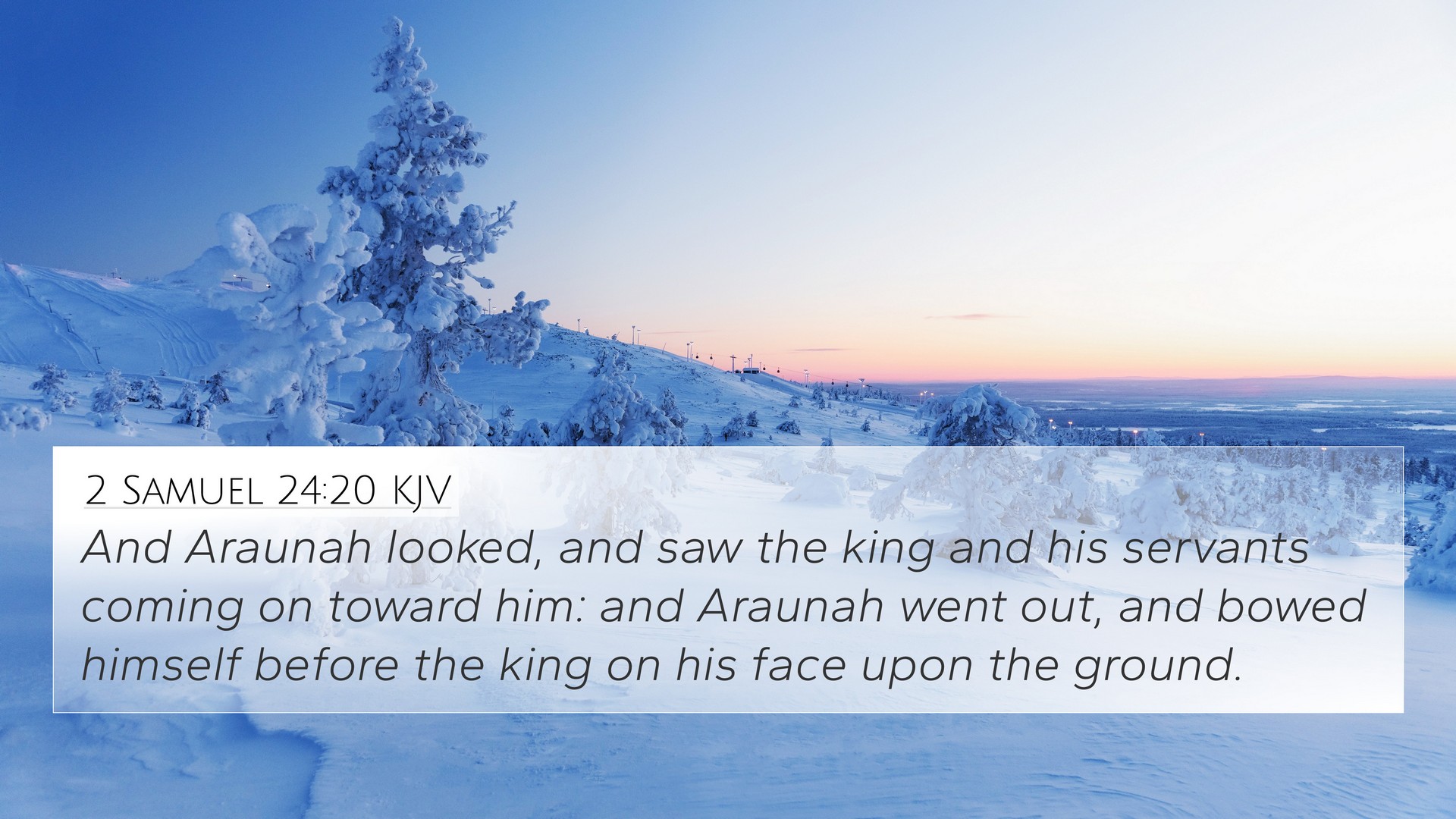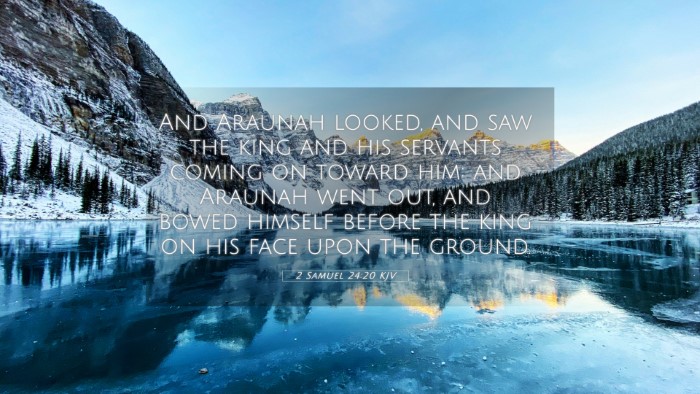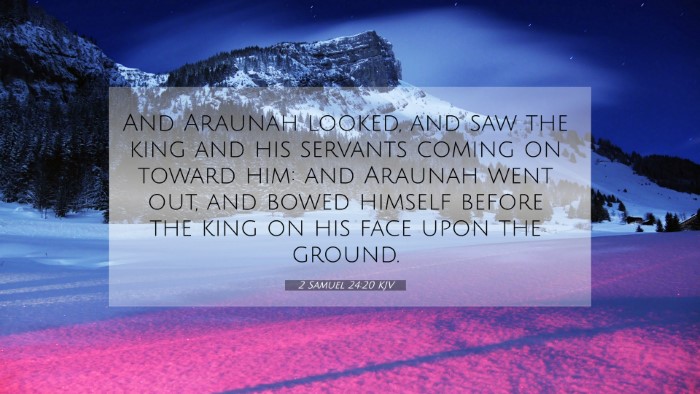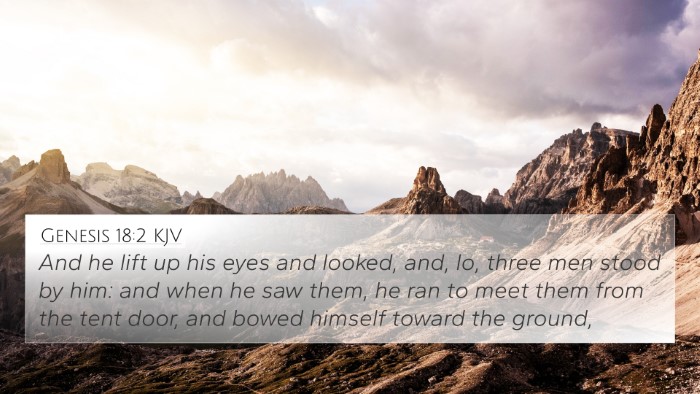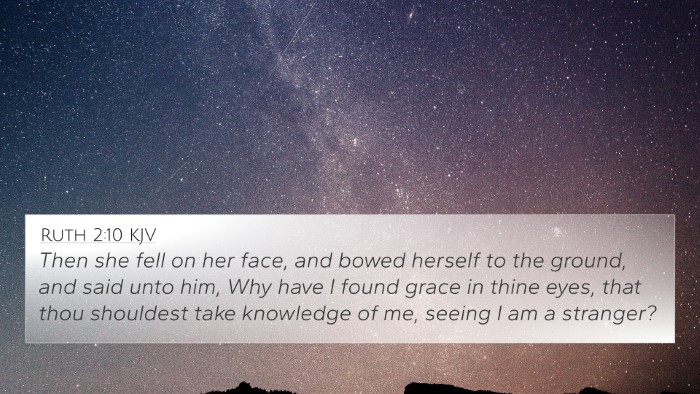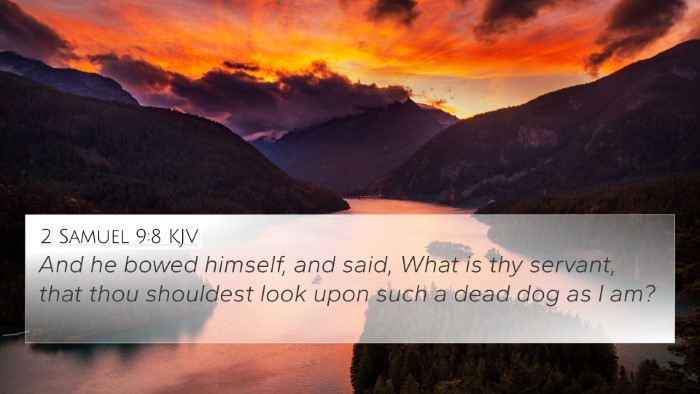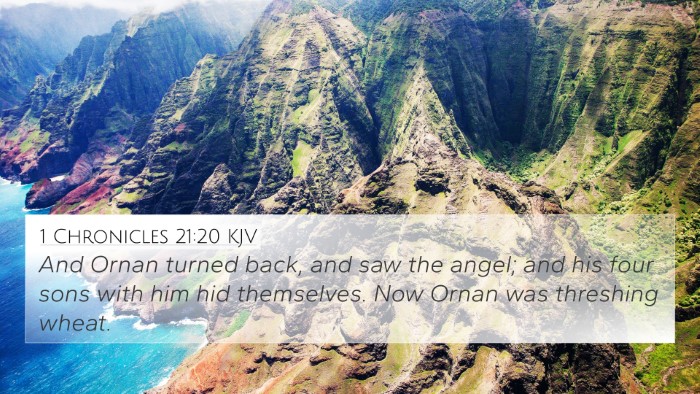Understanding 2 Samuel 24:20
The verse 2 Samuel 24:20 states: "And Araunah looked, and saw the king and his servants coming on toward him: and Araunah went out, and bowed himself before the king on his face upon the ground."
This verse marks a significant moment in the narrative of King David's reign during a time of divine judgment and national crisis. It highlights the encounter between David and Araunah, a Jebusite who owned the threshing floor which became pivotal in the future plans of God for Israel.
Commentary Insights
Matthew Henry's Commentary
Matthew Henry observes that Araunah’s act of bowing before David showcases his recognition of David’s authority and the king's position. The phrase "upon his face upon the ground" indicates deep humility and respect. This moment also illustrates God's provision through Araunah, as David was directed by God to build an altar on this location, which would later be the site for the temple.
Albert Barnes' Notes on the Bible
Albert Barnes emphasizes the significance of Araunah's humility and servitude. He notes that this encounter occurs after David's census, which had provoked God's displeasure. Araunah's willingness to offer the king his possessions represents the heart of submission and loyalty amidst the impending judgment David faced. It reveals themes of grace as God provided a way for David to appease His wrath.
Adam Clarke's Commentary
Adam Clarke elaborates on Araunah’s character, describing him as a man of faith who acknowledged the sovereignty of the king and, by extension, God’s authority. Clarke underscores the connection between physical land, divine purpose, and the sacredness of committing one’s resources for the Lord's work, which in this case, led to the altar’s establishment. This illustrates how the actions and attitudes of individuals can align with God’s larger plan.
Thematic Connections
This verse not only captures a historical interaction but also acts as a cornerstone for several theological themes:
- Divine Sovereignty: The interactions between David and Araunah highlight the divine will at play even during the mistakes of humankind.
- Humility and Servanthood: Araunah’s readiness to serve the king mirrors the posture of humility that God desires from His people.
- Preparation for Worship: This moment sets the stage for the eventual construction of the temple, emphasizing the importance of a dedicated place for worship.
- Grace and Redemption: Araunah’s offering reflects a form of God’s grace, allowing a pathway for repentance and relationship restoration.
Cross-References
To gain a deeper understanding of 2 Samuel 24:20, one can consider the following Biblical cross-references:
- 2 Samuel 24:24: David insists on buying the land, emphasizing the value of sacrifice in worship.
- 1 Chronicles 21:23: A deeper narrative on Araunah's offering reinforces the themes found in 2 Samuel.
- Genesis 14:18-20: The interaction of Abraham with Melchizedek illuminates themes of reverence and offering.
- Exodus 20:24: The command to build altars of earth highlights sacrificial worship.
- Isaiah 66:1-2: The essence of true worship correlates with God’s sovereign authority.
- Luke 14:11: The principle of humility in the kingdom of God resonates with Araunah’s actions.
- Hebrews 10:12-14: The ultimate sacrifice of Christ highlights God’s provision for redemption.
- Acts 7:47-50: The transition of God’s dwelling place into believers signifies ongoing divine presence beyond the temple.
- 2 Chronicles 3:1: This points to the fulfillment of David’s intention in temple construction.
- James 4:6: The principle of God opposing the proud but giving grace to the humble reinforces the attitude seen in Araunah.
Conclusion
The encounter depicted in 2 Samuel 24:20 offers profound insights into the nature of Divine guidance, humility, and sacrificial worship. Through cross-referencing, one can uncover a multidimensional understanding of this scripture, paving the way for fruitful Bible study and deeper reflections on God’s relational nature with humanity. Exploring these connections can enhance one’s spiritual journey, fostering a richer engagement with the Word of God.
